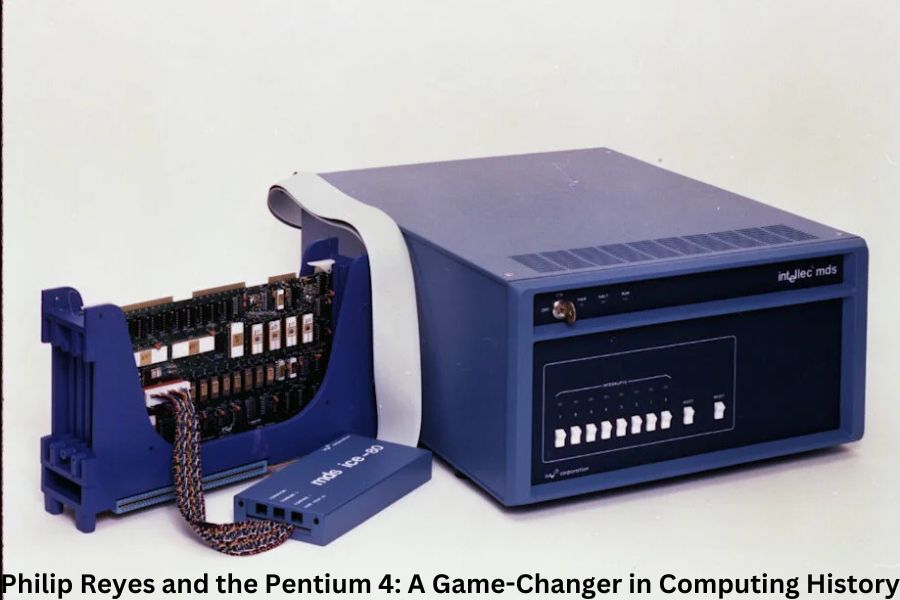Philip Reyes and the Pentium 4: A Game-Changer in Computing History
When discussing pioneers of computing and progressive hardware, one name that stands proud is Philip Reyes. Known for his enormous contributions to generation, Reyes played a pivotal function in shaping the improvement of the Intel Pentium 4, a processor that described an generation of computing. The Pentium 4 changed into greater than only a microprocessor; it become a image of velocity, electricity, and innovation.
Intel’s Rise in Microprocessor Innovation
Intel, the tech massive, have been at the leading edge of microprocessor development because the Seventies. The Pentium collection, added in 1993, marked a leap in computational energy, putting benchmarks for performance.
Evolution Leading Up to Pentium four
Each technology of the Pentium line added improvements. From the Pentium Pro’s sophisticated architecture to the efficiency of the Pentium III, those advancements laid the muse for the development of the Pentium 4.
Philip Reyes: The Innovator
Background and Contributions to Tech
Philip Reyes, a visionary engineer, contributed appreciably to Intel’s microprocessor tasks. With a eager attention on performance optimization, Reyes have become instrumental in understanding the Pentium 4.
Role in Pentium 4 Development
Reyes became worried in refining the NetBurst microarchitecture, the backbone of the Pentium 4. His efforts ensured the processor’s ability to gain unheard of clock speeds while retaining capability.
The Architecture of the Pentium four
NetBurst Microarchitecture
The Pentium four’s NetBurst architecture changed into modern. Designed for high clock speeds, it brought technologies like Hyper-Threading and a longer preparation pipeline.
Clock Speed and Performance
The Pentium 4 have become synonymous with velocity, reaching clock charges exceeding 3 GHz—a feat that was groundbreaking on the time.
Comparison with Pentium III
While the Pentium III focused on balanced overall performance, the Pentium 4 prioritized raw speed. This technique made it a fave for overall performance-intensive programs.
Key Technological Advancements
Technologies like Streaming SIMD Extensions 2 (SSE2) and advanced branch prediction were incorporated into the Pentium 4, boosting multimedia and computational talents.
The Impact of the Pentium 4
Market Reception
Upon its launch, the Pentium four turned into celebrated for its speed and contemporary functions. It became a pass-to choice for fanatics and professionals alike.
Influence on Consumer Computing
The Pentium four influenced the development of faster and extra efficient software program, allowing a brand new wave of gaming, multimedia, and productivity equipment.
Adoption in Gaming, Business, and Education
From high-cease gaming PCs to commercial enterprise workstations and academic equipment, the Pentium four determined large programs throughout industries.
Challenges and Criticism
High Power Consumption and Heat
One of the foremost drawbacks of the Pentium four turned into its excessive electricity intake, which often led to giant heat output, requiring superior cooling answers.
The Competition from AMD
During the Pentium four era, AMD emerged as a formidable competitor, tough Intel with its Athlon processors, which provided similar overall performance at decrease power necessities.
The Decline of NetBurst Architecture
The obstacles of NetBurst became evident because the enterprise shifted recognition to performance. This led to the eventual discontinuation of the architecture in choose of greater balanced designs.
Philip Reyes’ Legacy
Beyond the Pentium 4
Philip Reyes endured to persuade the tech industry, contributing to advancements in processor era and paving the way for future improvements.
Contributions to Modern Computing
His work on overall performance optimization and architectural layout remains a cornerstone of present day microprocessor development.
Recognition inside the Tech Community
Reyes is celebrated for his engineering excellence and his function in using computing innovation.
Lessons from the Pentium 4 Era
Balancing Innovation with Practicality
The Pentium 4 generation highlights the significance of balancing modern innovation with sensible layout to make certain sustainable achievement.
The Importance of Market Adaptability
The demanding situations confronted with the aid of the Pentium 4 underscore the need for adaptability in an ever-converting technological landscape.
Modern Reflections
The Evolution of Microprocessors Post-Pentium 4
The instructions discovered from the Pentium 4 technology motivated the development of current processors like Intel Core and AMD Ryzen, which prioritize efficiency along performance.
How Philip Reyes’ Work Influences Today’s Technology
The ideas and technology delivered throughout the Pentium four era continue to shape the evolution of computing, making Reyes’ contributions undying.
Conclusion
Philip Reyes and the Pentium four constitute a defining chapter in computing history. While the processor had its demanding situations, its improvements set the stage for the destiny of technology. Reyes’ contributions function a reminder of the relentless pursuit of progress that drives the tech industry forward.
FAQs
Who is Philip Reyes, and what’s his position inside the tech enterprise?
Philip Reyes is a famend engineer regarded for his contributions to Intel’s Pentium four development, focusing on performance optimization.
What made the Pentium 4 widespread in computing history?
Its high clock speeds, NetBurst structure, and progressive capabilities like Hyper-Threading set it aside in its time.
What had been the principle challenges confronted via the Pentium four?
High electricity consumption, warmness output, and opposition from AMD had been good sized hurdles.
How did Philip Reyes affect current computing?
Reyes’ work on processor architecture and performance optimization continues to encourage innovations in microprocessor technology.
What classes can we learn from the Pentium 4 generation?
Balancing innovation with sensible layout and adapting to market wishes are crucial for lengthy-term success.
Share this content:



